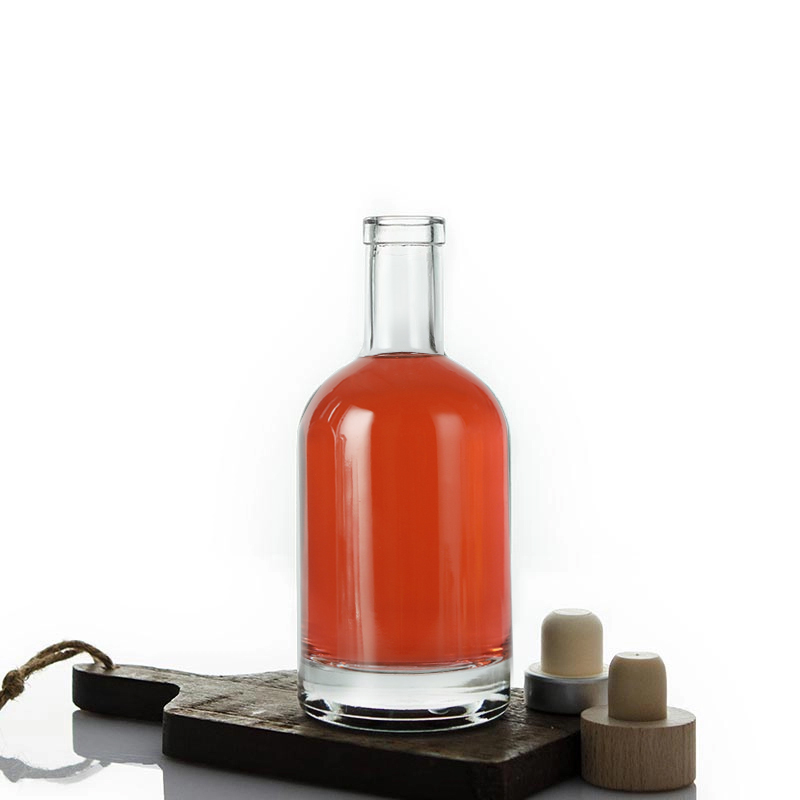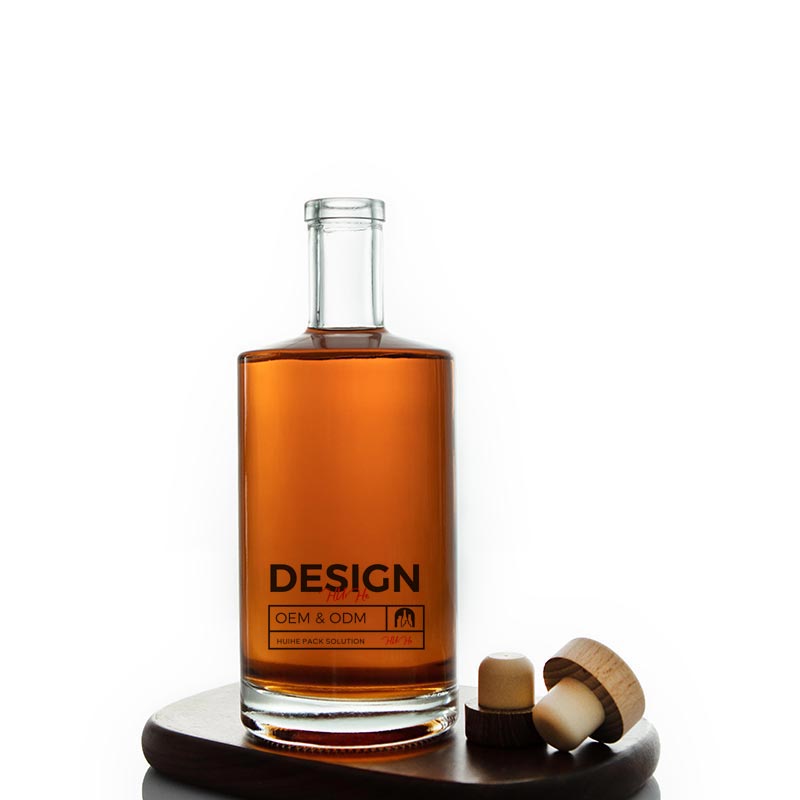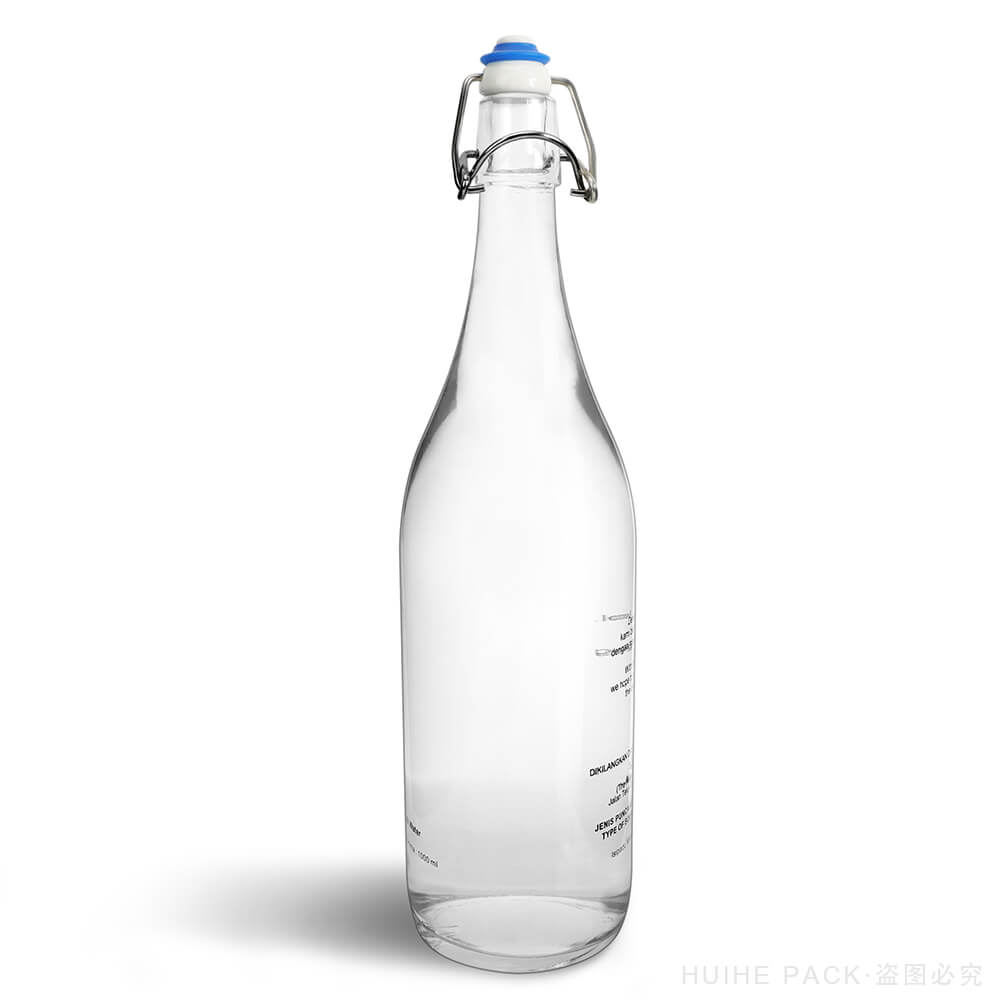Ever poured your heart and soul into a batch of mead, only to wonder if you chose the right bottle to showcase your liquid gold? The journey from fermentation to the final pour is a delicate one, and the bottle you choose is the final, crucial step. It's not just a container; it's the guardian of your mead's flavor, aroma, and longevity.
Choosing the right bottle for your mead is essential for preserving its quality, flavor, and shelf life. The ideal bottle should be made of dark-colored glass to protect against UV light degradation and have a secure seal, such as a cork, screw cap, or swing top, to prevent oxidation.
Whether you're a seasoned mead maker or just bottling your very first batch, this guide will walk you through the art and science of selecting the perfect vessel for your creation. Let's dive in and ensure your mead looks as good as it tastes.
Table of Contents:
What Exactly Is Mead? Why the Right Bottle Matters So Much? Step-by-Step: How to Bottle Your Mead? Top Bottle Styles for Mead Where to Buy Mead Bottles? | ![mead bottle]() |
What Exactly Is Mead?
Mead is an alcoholic beverage made by fermenting a mixture of honey, water, and yeast. That's the simple, formal definition. But it's also so much more. Often called "honey wine," mead is one of the oldest alcoholic drinks in human history, with evidence of its creation dating back thousands of years. Unlike beer or grape wine, the entire character of a mead—its flavor, aroma, and color—comes directly from the type of honey used, the yeast strain, and the aging process (mead age).
This means that a "bottle of mead" can be incredibly diverse. One batch might be dry and crisp, while another is sweet and full-bodied. Some meads are still, like wine, and others are carbonated, much like sparkling wine or even soda. It’s a drink with a rich, unique history and endless possibilities for flavor. So, while it's made from a simple list of ingredients, the result is anything but. That's why bottling this special drink, and choosing the right glass mead bottles, is a craft in itself.
Why the Right Bottle Matters So Much?
Choosing the right bottle is just as important as the mead itself. Think of the bottle as the final handshake between you, the maker, and the customer. It's more than just a container; it's a critical part of the packaging and brand experience.
It Protects the Quality and Flavor
High-quality glass mead bottles are designed to be a fortress for your brew. They protect against harmful UV light, which can ruin the taste and color of your mead. A good bottle paired with a tight seal, like a cork or screw cap, keeps oxygen out. This is key because oxygen is the enemy of fine alcohol. It can make your mead taste stale or oxidized, erasing all the hard work you put into it.
It Keeps Your Mead Fresher, Longer
The right bottle and seal help your mead last longer, whether it's for a few months or a few years of mead age. Proper sealing allows the mead to mature and develop more complex, interesting flavors over time.
It Elevates Your Brand Image
Let's be honest, we all judge a book by its cover. The look of your bottle is often the first thing a customer sees. A unique bottle shape, size, or a special seal can make your bottle of mead stand out on a crowded shelf. It tells a story about your brand and can make your product feel more valuable and premium.
It Adds to the Experience
The type of seal you choose also plays a big role. A swing top bottle for mead or a flip top bottle for mead is easy to open and can be reused, which is a great selling point. On the other hand, a traditional cork gives the customer a more classic, ritualistic experience, especially with a 750ml mead bottle with cork. In the end, every detail of the bottle you choose contributes to the overall customer experience and leaves a lasting impression.
![mead bottle wholesale mead bottle wholesale]()
Step-by-Step: How to Bottle Your Mead?
Bottling your mead is the final boss of the brewing process. It's the step where you transform your hard work into a sellable product. Get it wrong, and all your effort can go to waste. Get it right, and your mead will be ready to impress. Here's how you ace the bottling mead process, step by step.
Step 1: Sanitize, Sanitize, Sanitize!
This is the most important step, period. If your bottles aren't clean, you risk contaminating your mead and ruining the whole batch. Think of it like a surgeon preparing for an operation—everything must be sterile. Use a professional-grade sanitizer and make sure every bottle, every tube, and every piece of equipment is spotless. Don't rush this part. Your future self (and your customers) will thank you.
Step 2: The Gentle Transfer
Now for the delicate part. Using a siphon is the best way to get your mead from the fermenter to the glass bottles for mead. The goal is to move the liquid without stirring up the "lees," which are the leftover bits of yeast and honey at the bottom of the fermenter. This is a bit like a covert operation—slow and steady wins the race. Keep the siphon tip just above the sediment to keep your mead crystal clear.
Step 3: Mind the Headspace
Once the mead is flowing, you need to be careful not to overfill the bottles. Leave a little bit of empty space at the top, usually about 1 to 2 inches. This is called "headspace." Why is this important? It gives the liquid room to expand if the temperature changes and prevents the pressure from building up, which could pop the cork or cap. It also leaves room for any secondary fermentation to happen without exploding your bottle.
Step 4: Seal the Deal
With the mead in the bottle, it's time to seal it up tight. You have a few options for bottle caps and closures:
Corks: The classic choice, especially for a 750ml mead bottle with cork. They offer a traditional look and a secure seal. They're great for meads you plan to age for a while.
Screw Caps: Simple and effective. They create a very tight seal and are easy for customers to open.
Flip-Tops: Like the ones you see on a swing top bottle for mead. They are easy to use and look unique. The best part? They’re reusable.
Step 5: The Waiting Game (Optional)
After all that work, it's tempting to open a bottle right away. But many meads benefit from a little more time in the bottle, which is known as mead age. This final period of aging allows the flavors to blend and mature, creating a smoother, more complex taste. So, store your bottles in a cool, dark place and let the magic happen.
Top Bottle Styles for Mead
When it comes to mead packaging, the bottle you choose is your product's handshake with the world. Different bottle shapes and sizes aren't just for looks; they tell a story about your mead and its intended use. Here are some of the best bottle styles for glass bottles for mead.
Classic Bottle Styles
These are the tried-and-true choices that give your mead a timeless feel.
Bordeaux Bottle: This is the sleek, straight-sided bottle you see with many wines. Its simple, classic design is perfect for showing off the elegant clarity and color of your mead.
Burgundy Bottle: With its wider body and sloping shoulders, the Burgundy bottle has a softer, more rounded look. It’s a great choice if your mead has a complex, layered flavor profile that feels just as smooth as the bottle looks.
Champagne Bottle: Heavier glass and a deep dimple at the bottom (called a "punt") make this bottle a fortress. It's built to handle pressure, so it’s ideal for carbonated or sparkling meads, or for meads that will be aged for a very long time.
Specialty Bottle Styles
These bottles offer unique features that can make your mead stand out.
750ml Mead Bottle with Cork: This is the most popular choice for a reason. The 750ml size is standard in the industry, and the classic cork seal gives your product a high-end, traditional feel. It's the bottle people expect to see when they buy a quality brew.
Swing Top Bottles for Mead: Also known as flip top bottles for mead, these are fantastic for small-batch brewers or homebrewers. The ceramic cap with a metal clasp is easy to open and reseal, making it convenient for customers who might not finish the bottle in one sitting. Plus, they have a fun, rustic look.
Sizes for Every Occasion
The size of your bottle also matters, whether you're aiming for a single serving or something for a special occasion.
Smaller Bottles: A 375ml or 500ml bottle is perfect for gift sets, tastings, or for those who just want a single serving. They're a great way to let customers try your product without committing to a full-sized bottle of mead.
Larger Bottles: A 1.5L (magnum) or even larger bottle is a showstopper. These are perfect for parties, special events, or for a limited-edition mead bottles for sale that collectors will love. They make a statement and instantly elevate the perceived value of your product.
Choosing the right bottle is about more than aesthetics; it's about aligning your packaging with your product's purpose. We provide a variety of high-quality mead bottles that can help your brand shine.
Where to Buy Mead Bottles?
Finding the right bottles for your mead is a crucial step, and your sourcing strategy will depend on the scale of your operation.
For Small-Batch and Home Brewers
If you're just starting out or producing mead on a smaller scale, you have a few excellent options for finding mead jars and bottles:
Online Retailers: Websites like Amazon, Northern Brewer, and Homebrew Supply offer a wide variety of mead bottles for sale, often in smaller quantities. These platforms are great for testing different bottle styles and seals without a large commitment.
For Large-Scale & Custom Orders
For established mead brands, distilleries, and distributors, partnering with a reliable manufacturer is key. This is where we come in.
If you're looking for high-quality glass bottles for mead, we, at HUIHE PACK, are a professional Chinese glass spirits bottle factory and supplier. We specialize in providing comprehensive bottling solutions for B2B clients worldwide.
Here's why you should choose us:
Experience & Expertise: With over 16 years of experience focused on manufacturing spirits bottles, we have the expertise to meet your needs. Our own factory allows us to offer both OEM/ODM (Original Equipment/Design Manufacturer) services.
Quality You Can Trust: Our commitment to quality is proven by our team of over 20 dedicated QC (Quality Control) specialists. We conduct 100% product inspection to ensure every bottle meets the highest standards. We hold all necessary certifications to guarantee product safety and compliance.
Comprehensive Solutions: We offer a one-stop-shop for your spirits packaging needs. Whether you need to buy wholesale glass mead bottles from our existing inventory or create a completely unique design, we can help. Our in-house design team can bring your vision to life, creating custom mead bottles that reflect your brand identity.
Global Reach & Competitive Pricing: We export to more than 50 countries and regions, offering competitive pricing thanks to our factory-direct model. We also provide free samples, so you can test our quality firsthand before you place a large order.
![liquor bottle wholesale liquor bottle wholesale]()
Ready to find the perfect bottle for your mead? Contact us today for a free consultation and quote.
Conclusion:
Choosing the right mead bottle is a critical final step that goes far beyond simple containment. The bottle you select is a vital part of your product's story and a key tool in your brand's communication. It's a strategic decision that maximizes your product's value and market appeal.
A well-chosen glass mead bottle not only ensures your mead is properly preserved but also speaks volumes about your brand's identity through its unique design and quality. It transforms your product from a simple beverage into a premium, eye-catching offering on the shelf.
We hope this guide has provided you with valuable insights on how to choose and package your mead. For all your large-scale and custom glass spirits bottle needs, remember that our factory specializes in high-quality, reliable solutions designed to help you create a product you can be truly proud of.
Disclaimer: This article is based on our industry experience and is intended for informational purposes only. It does not constitute professional business or legal advice. Specific choices and actions should be made based on your own product's characteristics and requirements.
FAQ:
What is a bottle of mead?
A bottle of mead is a fermented alcoholic beverage made from honey, water, and yeast.
Is mead an alcohol?
Yes, mead is an alcoholic beverage.
Why does no one drink mead anymore?
People do drink mead; its popularity has been rising steadily with the craft beverage movement.
Is mead healthier than alcohol?
Mead is an alcoholic beverage, and like all alcohol, it should be consumed in moderation. It is not inherently healthier than other types of alcohol.
How to bottle mead?
Bottle mead by siphoning the clarified liquid from the fermentation vessel into sanitized glass bottles, leaving a small amount of headspace.
Does mead age in the bottle?
Yes, mead can and often does age in the bottle, which can improve its flavor and complexity over time.
When to bottle mead?
Bottle mead after it has finished fermenting and has become clear, usually after the primary and secondary fermentation stages are complete.
Can you age mead in bottles?
Yes, you can age mead in bottles. This is a common practice to allow flavors to mature and mellow.
Can you bottle mead in mason jars?
Yes, you can bottle mead in mason jars, but be sure to use a tight, airtight seal to prevent oxidation.
Can you make mead in a plastic bottle?
While you can ferment mead in food-grade plastic, it's not recommended for long-term storage as plastic can be permeable to oxygen.
How long does an open bottle of mead last?
An open bottle of mead can last for a few weeks to a few months if it's recapped and stored in the refrigerator, similar to wine.
How long does bottled mead last?
Properly bottled mead can last for many years, sometimes even decades, if stored in a cool, dark place.
How long is mead good for after bottling?
Mead can be good for many years after bottling, with some varieties improving with age.
How long to age mead before bottling?
Age mead until fermentation is complete and the liquid has cleared, which can take anywhere from a few weeks to several months.
How much does a bottle of mead cost?
The cost of a bottle of mead varies widely, typically ranging from $15 to $50 or more, depending on the brand, quality, and age.
How much is a bottle of mead?
The price of a bottle of mead can vary, usually between $15 and $50, based on factors like brand and ingredients.
How to bottle mead after fermentation?
After fermentation, transfer the mead to sanitized bottles using a siphon, making sure to avoid disturbing the sediment at the bottom of the fermenter.
How to bottle mead without a siphon?
You can bottle mead without a siphon using a spigot attached to the fermenter, but this method may stir up more sediment.
How to filter mead when bottling?
You can filter mead when bottling by using a sterile filter pad or a fine mesh strainer, though most homebrewers simply siphon the clear liquid and leave the sediment behind.
How to sanitize bottles for mead?
Sanitize bottles for mead using a food-grade sanitizer, either by soaking them in a sanitizing solution or by using a bottle rinser.
How to store bottled mead?
Store bottled mead upright in a cool, dark place with a stable temperature to prevent light and heat damage.
When should I bottle my mead?
You should bottle your mead when fermentation is complete and the mead has had sufficient time to clarify.
How long does an unopened bottle of mead last?
An unopened bottle of mead can last for many years, with some varieties becoming more complex with age.

















